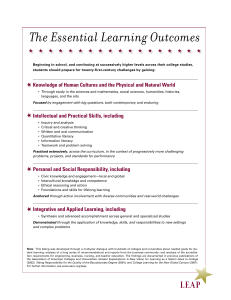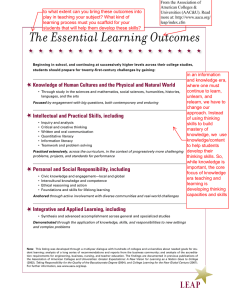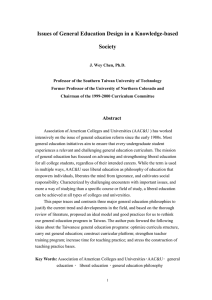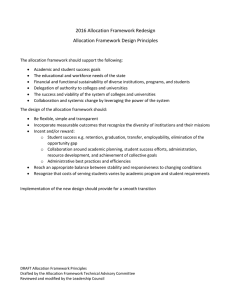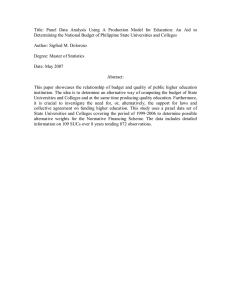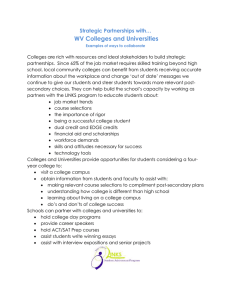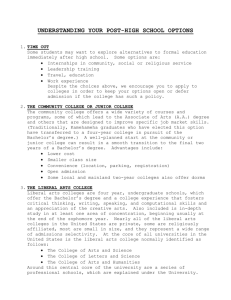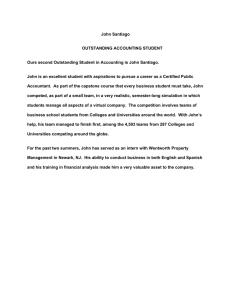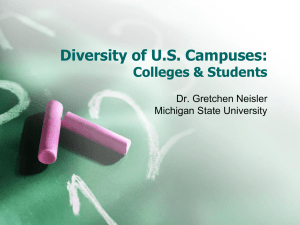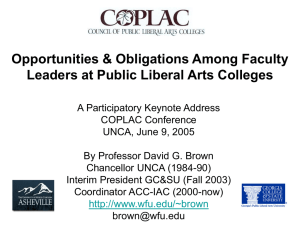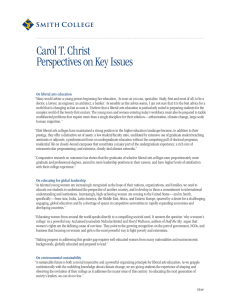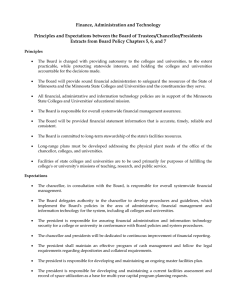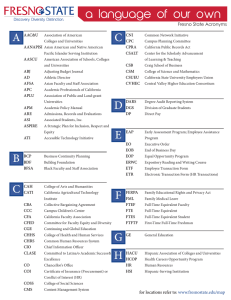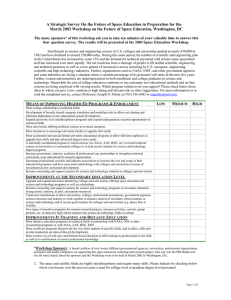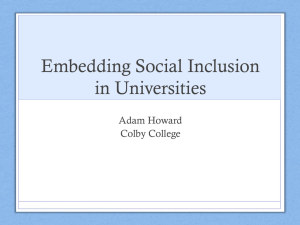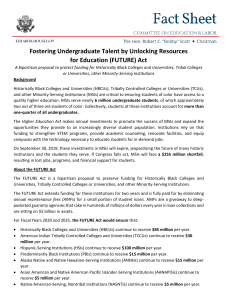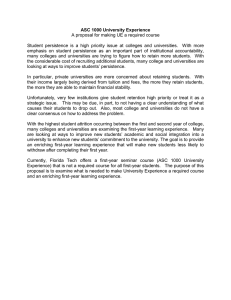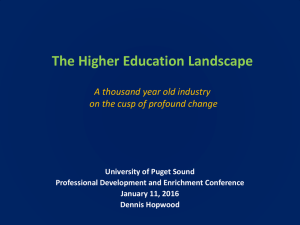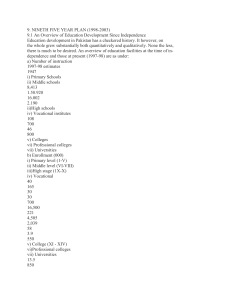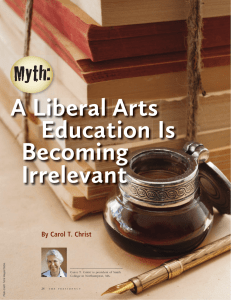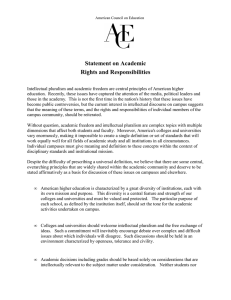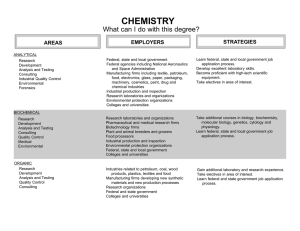The Essential Learning Outcomes
advertisement
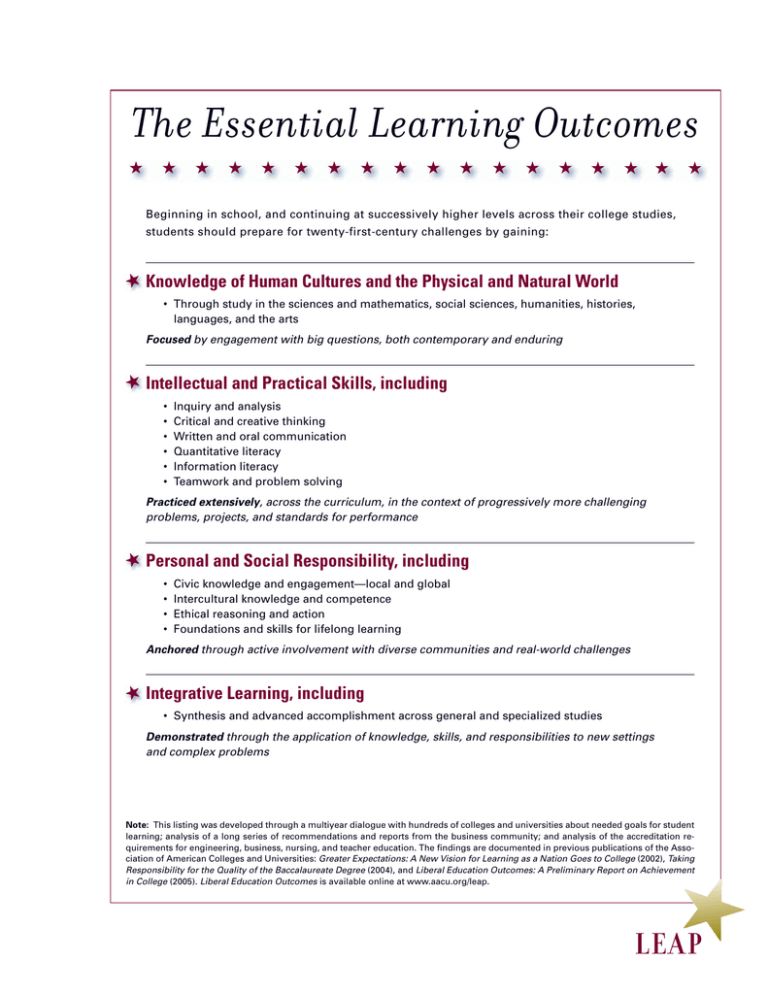
The Essential Learning Outcomes Beginning in school, and continuing at successively higher levels across their college studies, students should prepare for twenty-first-century challenges by gaining: Knowledge of Human Cultures and the Physical and Natural World • Through study in the sciences and mathematics, social sciences, humanities, histories, languages, and the arts Focused by engagement with big questions, both contemporary and enduring Intellectual and Practical Skills, including • • • • • • Inquiry and analysis Critical and creative thinking Written and oral communication Quantitative literacy Information literacy Teamwork and problem solving Practiced extensively, across the curriculum, in the context of progressively more challenging problems, projects, and standards for performance Personal and Social Responsibility, including • • • • Civic knowledge and engagement—local and global Intercultural knowledge and competence Ethical reasoning and action Foundations and skills for lifelong learning Anchored through active involvement with diverse communities and real-world challenges Integrative Learning, including • Synthesis and advanced accomplishment across general and specialized studies Demonstrated through the application of knowledge, skills, and responsibilities to new settings and complex problems Note: This listing was developed through a multiyear dialogue with hundreds of colleges and universities about needed goals for student learning; analysis of a long series of recommendations and reports from the business community; and analysis of the accreditation requirements for engineering, business, nursing, and teacher education. The findings are documented in previous publications of the Association of American Colleges and Universities: Greater Expectations: A New Vision for Learning as a Nation Goes to College (2002), Taking Responsibility for the Quality of the Baccalaureate Degree (2004), and Liberal Education Outcomes: A Preliminary Report on Achievement in College (2005). Liberal Education Outcomes is available online at www.aacu.org/leap.
